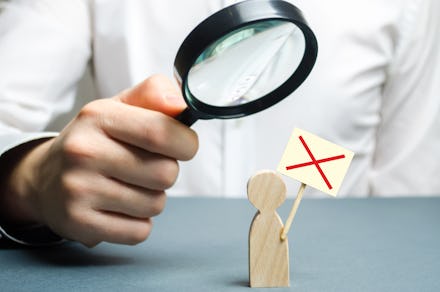How billions of people worldwide are being spied on by their government

Social media can be a good way to keep in touch with friends and family. Now, a study confirms that it's also a great way for the government to keep in touch with its citizens. According to a report on internet freedom by Freedom House — a non-government agency, funded by the U.S. government, that advocates for democracy, political freedom, and human rights — there are nearly 3 billion people who are under surveillance on social media or living in an area where social media is used to undermine democratic processes. It's a situation that has only gotten worse within the past nine years.
Mike Abramowitz, president of Freedom House, spoke with reporters at Vice to describe how social media is being abused by people in power. "Governments and populist movements are using social media to manipulate elections on a grand scale," he explained, "and governments are using technology to monitor their own citizens on an unprecedented scale."
With the amount of personal data people willingly release on social media, government agencies can easily collect and analyze populations of people as they please. The U.S. government, for example, has used social media to track participants in anti-Trump protests and lawyers and journalists at the southern border. The government has also used social media as a means to monitor those who apply for U.S. visas.
"Many employ artificial intelligence to identify potential threats and silence opposition," said Abramowitz. "As this monitoring technology has become less expensive, a growing number of law enforcement agencies are using mass surveillance with little oversight or accountability."
The Freedom House report, called Freedom on the Net 2019: The Crisis of Social Media, examined 65 countries worldwide to examine 87 percent of the world's internet users for their study. Out of all the countries, China maintained its status as "the world's worst abuser of internet freedom" for the fourth year in a row. The country has closed social media accounts of citizens showing "any sort of 'deviant' behavior," including small things like talking about environmental disasters. The Chinese government's pressure essentially forces people into self-censorship in order to continue using a social media platform that also served as a tool for everyday life (such as finding transportation or banking).
In contrast, Iceland was "the world's best protector of internet freedom" for having no registered civil or criminal cases against citizens for expressing themselves online. "The country boasts enviable conditions," praises the report, "including near-universal connectivity, limited restrictions on content, and strong protections for users’ rights."
The U.S.'s position, the sixth best country for internet freedom, has dropped for the third consecutive year. The report states that immigrant and law enforcement agencies have only increased public surveillance over the past years to keep an eye on critics. Continuing mergers of telecom giants, like AT&T and Time Warner, also threatened to limit consumer options and access to technology. And the spread of disinformation has gotten worse as top government officials and leaders utilize it for their campaigns.
Abramowitz lamented the disinformation trend. "What's most alarming is how populist leaders and far-right groups have grown adept not only at creating viral disinformation but also at harnessing networks that disseminate it," he said. The majority of the disinformation, wrote the authors, are from domestic sources rather than foreign interference.
The U.S. isn't the only example of this kind of information harnessing — Brazilian President Jair Bolsonaro also ushered in a wave of "cyberattacks against journalists, government entities, and politically engaged users" as "social media manipulation reached new heights." In countries that were at risk of civil unrest, like Bangladesh and Zimbabwe, local governments controlled what citizens could see by restricting networks and limiting "unfavorable information."
Abramowitz acknowledged the good that social media can do to Vice, noting how pro-democracy and freedom protesters in Hong Kong and Lebanon use the internet to hold politicians accountable. However, the lack of strict regulation still makes it the Wild West out there — especially with regards to whether social media platforms should allow political ads without fact-checking beforehand or ban them completely.
"Strong protections for democratic freedoms are necessary to ensure that the internet does not become a Trojan horse for tyranny and oppression," the report recommends. As technology advances to greater heights, the protection of our citizens must be greater as well.